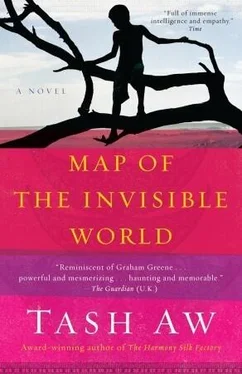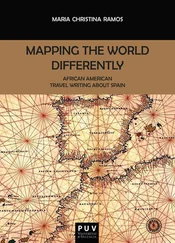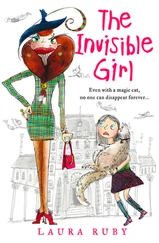Tash Aw - Map of the Invisible World
Здесь есть возможность читать онлайн «Tash Aw - Map of the Invisible World» — ознакомительный отрывок электронной книги совершенно бесплатно, а после прочтения отрывка купить полную версию. В некоторых случаях можно слушать аудио, скачать через торрент в формате fb2 и присутствует краткое содержание. Год выпуска: 2010, Издательство: Spiegel & Grau, Жанр: Современная проза, на английском языке. Описание произведения, (предисловие) а так же отзывы посетителей доступны на портале библиотеки ЛибКат.
- Название:Map of the Invisible World
- Автор:
- Издательство:Spiegel & Grau
- Жанр:
- Год:2010
- ISBN:нет данных
- Рейтинг книги:4 / 5. Голосов: 1
-
Избранное:Добавить в избранное
- Отзывы:
-
Ваша оценка:
- 80
- 1
- 2
- 3
- 4
- 5
Map of the Invisible World: краткое содержание, описание и аннотация
Предлагаем к чтению аннотацию, описание, краткое содержание или предисловие (зависит от того, что написал сам автор книги «Map of the Invisible World»). Если вы не нашли необходимую информацию о книге — напишите в комментариях, мы постараемся отыскать её.
comes an enthralling novel that evokes an exotic yet turbulent place and time—1960s Indonesia during President Sukarno’s drive to purge the country of its colonial past. A page-turning story,
follows the journeys of two brothers and an American woman who are indelibly marked by the past — and swept up in the tides of history.
Map of the Invisible World — читать онлайн ознакомительный отрывок
Ниже представлен текст книги, разбитый по страницам. Система сохранения места последней прочитанной страницы, позволяет с удобством читать онлайн бесплатно книгу «Map of the Invisible World», без необходимости каждый раз заново искать на чём Вы остановились. Поставьте закладку, и сможете в любой момент перейти на страницу, на которой закончили чтение.
Интервал:
Закладка:
“Do you see Din?” Mick asked, slowing down as they skirted the fringes of the demonstration.
“No,” Margaret said. “He might be in the crowd, of course, but he’s not with those guys standing up by the podium. Those are the members of the student council. Let’s drive around to the back. There’s another entrance farther along where there won’t be anyone and we can leave the car. I don’t think it’s a good idea to fling ourselves into the midst of this mob.”
“Agreed. Students are the most dangerous ones nowadays.”
Margaret looked back at the young woman who had been speaking. She was stepping down from the podium to raucous applause, shaking hands with a slim, long-haired boy. “She looks like a ringleader,” Margaret said. “That’s who we need to speak to.”
They left the car and walked across the badminton courts; the smooth concrete surface was marked by cracks where tree roots were forcing their way slowly upward. Overhead the spreading acacias were shedding their leaves at the end of the long hot season, scattering their tawny confetti across the shady court. There were pieces of paper too, hundreds of leaflets urging hundreds of different things. Every day there were students handing out these flyers, but Margaret was never sure if anyone read them; they lay trodden into the dirt, bleached to a crust by the sun. Along some of the walkways outside the classrooms there was broken glass, and many of the panes from the louvred windows were missing. Not so long ago, from her office across the court, Margaret had seen a boy remove one of these windowpanes and smash it over another boy’s head. He had calmly walked up behind his enemy, raised the rectangular sheet of glass, and brought it down neatly on the boy’s crown. The glass had broken very easily, as though made of thin, crumbly plaster. It had exploded into a million tiny shards that refracted the sunlight — balls of brilliant color that exploded into existence for a second, like those magical bursts of fireworks that light up for a moment before suddenly disappearing, leaving you staring at nothing ness.
They could hear the scraping of chairs on hard, gritty floors; a distant voice on a microphone, harsh, exhorting; singing in the auditorium; a guitar; a sudden chorus of whistling — all the usual sounds of the campus, and yet there was an odd calm to the place. Margaret and Mick made their way up to Margaret’s office, past a makeshift barricade of desks and chairs with a piece of paper pinned to it. Revolutionaries only past this point , it proclaimed in shaky handwriting; it reminded her of a child’s den, a tree house that had fallen to the ground.
“That’s weird,” Margaret said when she got to the door. “I can’t get it open. My key isn’t working — the lock seems to be jammed.”
Mick wiggled the key, teasing the handle at the same time. He leaned a shoulder against the door, pushing his weight against it. Margaret noticed how heavy he had become. He had always been sturdily built, even as a young man, but now he was heavyset. His hands, however, worked with a delicacy that was not in keeping with the bulkiness of his frame. “Someone’s been tampering with the lock. Don’t worry, it’ll give, it’s only a flimsy thing. And it’s not really broken.” He pulled the door toward him, and with a gentle twist eased it open.
Margaret’s desk looked exactly as she had left it three days earlier. She sat in her chair and surveyed the mounds of paper and books: all in order. There were notes too, from various students, as well as political leaflets. Instinctively she reached for the bottom right-hand drawer, just below her knee; she found the key, hidden in the thin ledge on the underside of the desk, and when she unlocked the drawer she was comforted to see the same buff-colored folder that had been there for many years, on its cover the words: “Tchambuli: Kinship and Understanding in Northern Papua New Guinea.” Her passport, too, lay nestled between the folder and the side of the drawer, its pages opening just enough to reveal the dollar bills folded inside. It had been a long time since she had seen either of those things; they seemed foreign, unreal — things that belonged to someone else. She considered taking them with her. But then she closed the drawer and locked it, returning the key to its hiding place. Somehow these two items — which amounted to a mere jumble of paper — seemed safer here, where they had always been. In spite of the riots outside, she trusted her office and the university more than she did her house.
Din’s desk, however, had been stripped clean. The low shelves behind the desk were bare except for a thin trail of ants snaking their way into a tiny fissure in the wall. It reminded Margaret of her father’s bed in the nursing home after he had died — ghostly, devoid of linen, of life; the room had been cleaned of all its contents, which had been placed in a few boxes. Din’s desk had the same quiet emptiness: You could barely tell that someone had occupied this space up to a few days ago. Mick began looking through the drawers but found only bits of string and a few rubber bands.
“Nope, no clues whatsoever,” he said, running his hand under the desk, “it’s completely clean. Not even a porn mag taped to the inside. Is it normal for people to disappear like this?”
“Students often leave without giving notice. One day they’re there, arguing with you about whether Brezhnev is a good guy, the next day they’re gone. Sometimes they’re killed in a riot or run over by a truck, sometimes they just give up. Mostly they run out of money and are too ashamed to be seen by their friends, so they disappear into thin air. But teachers, well, that’s not so common. You normally have warning signs. And someone like Din … he’s not the kind to surrender everything like that.”
“Maybe there were warning signs and you just didn’t see them.”
“You don’t understand, Mick: He’s bright. And ambitious. What his ambitions involve, I’m less certain, but he wouldn’t just throw it all away like that. He might not have been likable, but he was clever. He had a future. It’s possible he’s been fired, but then again, it wouldn’t be so sudden — and I would definitely have known about it.”
“Does anyone really have a future in this country?” Mick asked as they left the office and made their way down to the courtyard. Margaret could not tell if he was joking.
“We need to talk to the people who run the student council,” she said. “They’ll know where Din is — they’re all basically Communists of one kind or another, even if they say they aren’t. I lose track of all the factions, and I don’t think they really know what’s going on either. There are the most almighty fights on the council — mass brawls and chair throwing at meetings, death threats — that sort of healthy student debate. Recently a boy representing one of the Islamic groups found a dead cat hanging from the handlebars of his bicycle. He told me that someone threw a rock through his bedroom window at home — god, he was frightened, the poor boy. It seems the hard-line Commies on the council wanted him to vote with them on something, or march with them, and he didn’t know if it was a good thing. Problem is, I don’t know where Din stands on any of this. I think he’s fairly neutral — or as neutral as one can be in this country.”
They made their way toward the main gates, where the protestors were still gathered. They heard a steady chanting: a single word that sounded to Margaret like rhi-no-ce-ros , or perhaps someone’s name. There was a time when she would have understood these not-so-clever in-jokes, these satirical references to things that happened in daily life, but she no longer grasped what was happening. She looked at Mick, who was walking quite calmly beside her, taking care not to edge ahead, as if waiting for her to lead the way.
Читать дальшеИнтервал:
Закладка:
Похожие книги на «Map of the Invisible World»
Представляем Вашему вниманию похожие книги на «Map of the Invisible World» списком для выбора. Мы отобрали схожую по названию и смыслу литературу в надежде предоставить читателям больше вариантов отыскать новые, интересные, ещё непрочитанные произведения.
Обсуждение, отзывы о книге «Map of the Invisible World» и просто собственные мнения читателей. Оставьте ваши комментарии, напишите, что Вы думаете о произведении, его смысле или главных героях. Укажите что конкретно понравилось, а что нет, и почему Вы так считаете.












